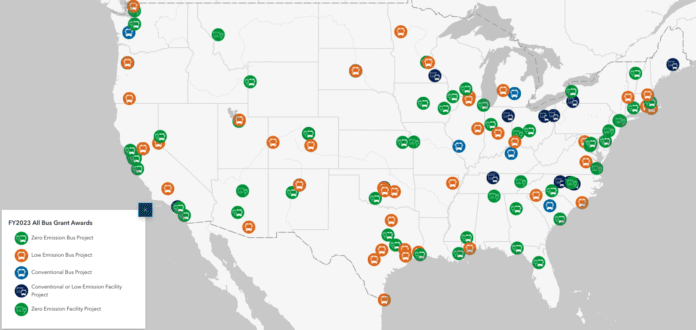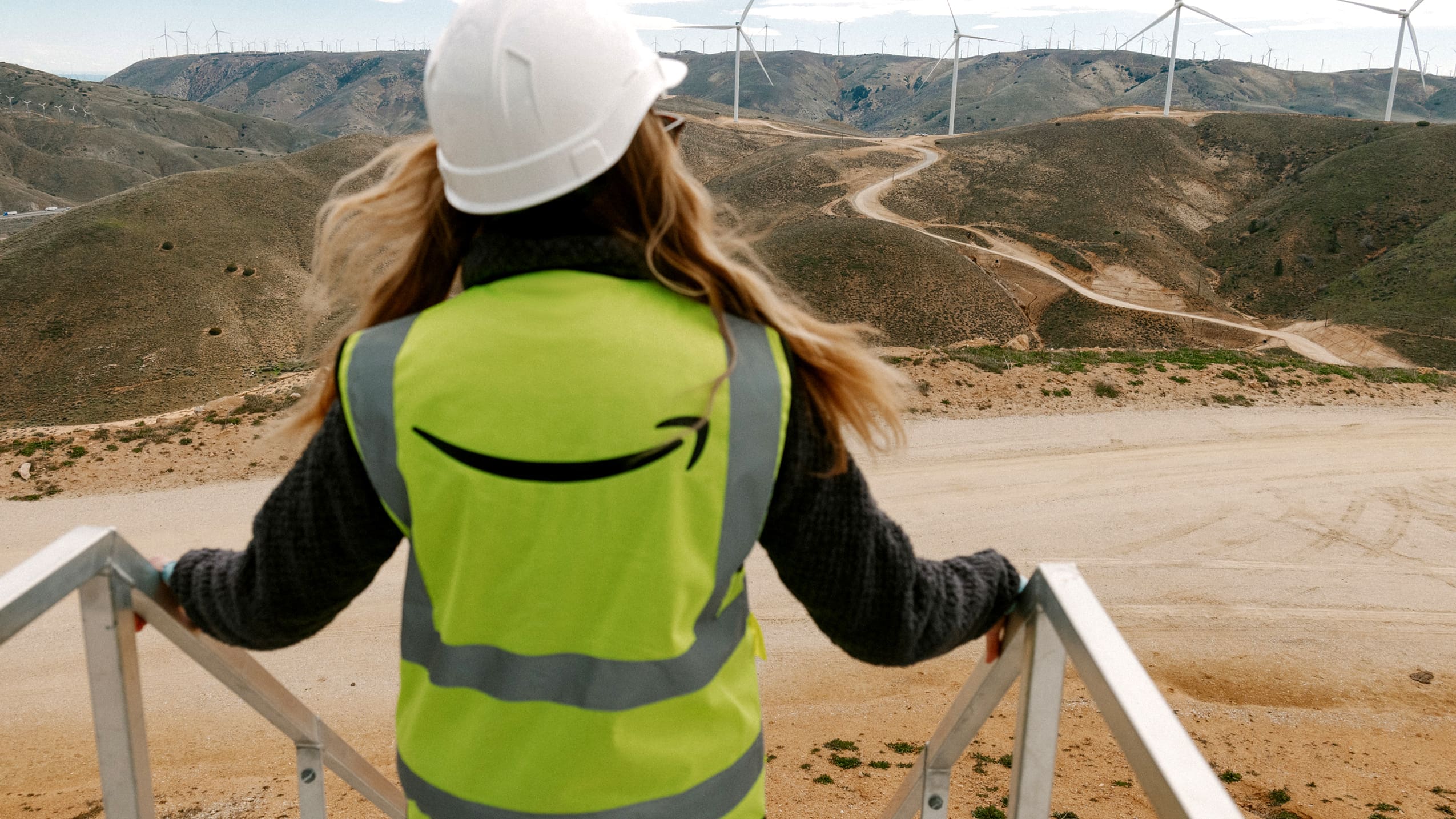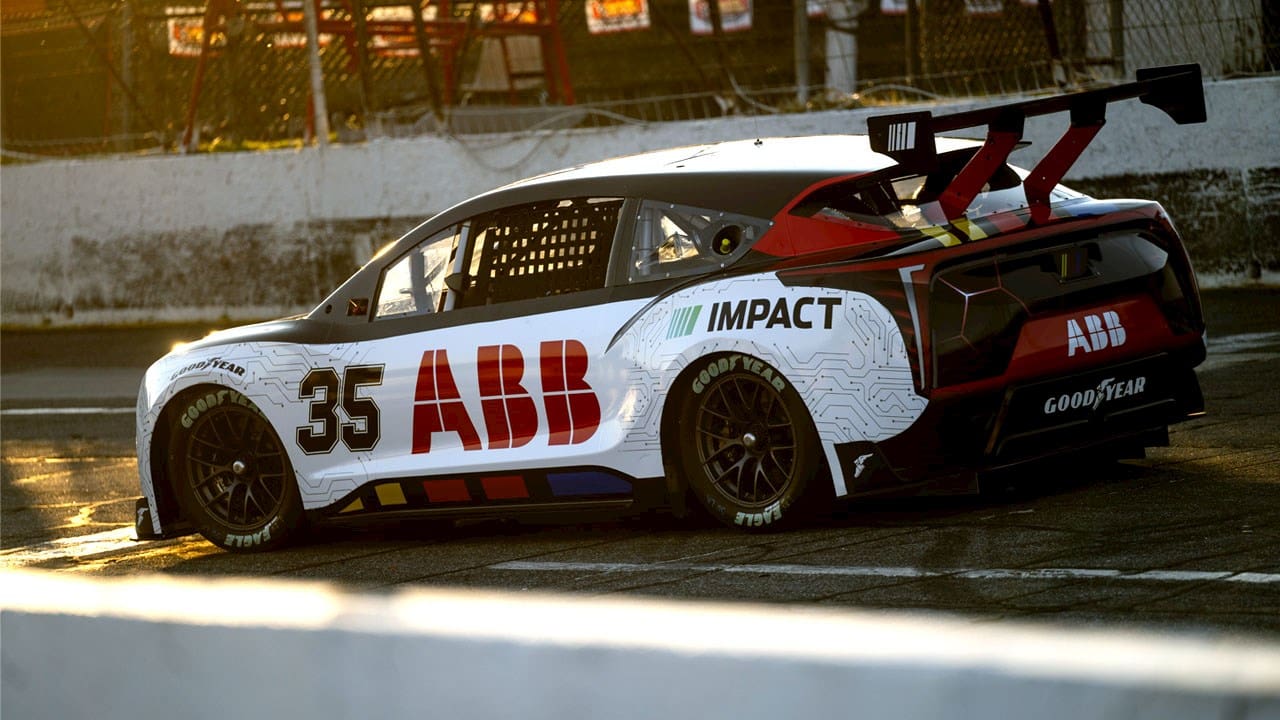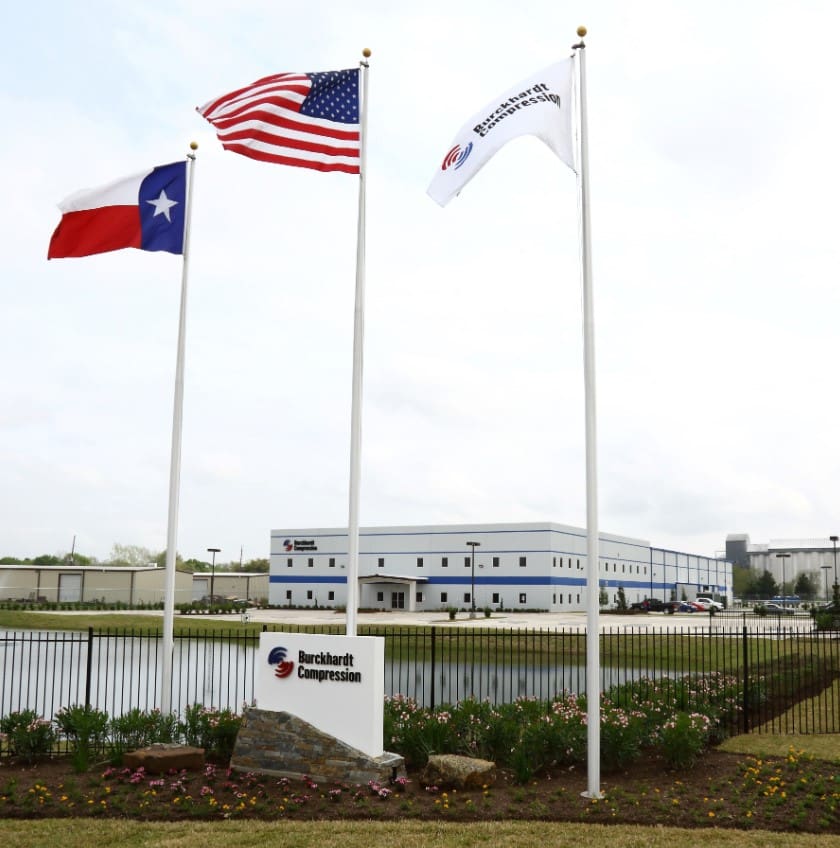
The US Department of Transportation’s Federal Transit Administration (FTA) announced a major win for the gas compression industry. The FTA will fund 130 awards for 1700 American-built buses totaling nearly US$1.7 billion of investment. In response to the Notice of Funding Opportunity, FTA received 475 eligible project proposals totaling approximately US$8.7 billion in requests.
Nearly half of the buses will be zero-emissions models in the form of electric models or compressed natural gas (CNG) buses that run on renewable natural gas (RNG). For example, the Houston-based US$40.4 million project, the sixth largest of the 130 projects, will upgrade the Hiram Clarke bus depot to fuel and service 40 RNG buses. “In addition to investing in the future of transit, the awards announced today also invest in America’s workers,” the FTA said in a statement. “Of the funded projects, 22 will operate with project labor agreements to ensure their efficient and timely completion, and 34 projects have committed to the gold standard model of registered apprenticeship, with supportive services such as childcare for employees. In addition, the zero-emissions bus grants include millions of dollars in funding for workforce programs that will train today’s internal combustion and diesel mechanics to become tomorrow’s electric motor technicians. The awards announced today are part of President Biden’s Investing in America agenda, which is rebuilding our nation’s infrastructure and creating a manufacturing and innovation boom powered by good-paying jobs that grow the American economy from the bottom up and middle out.”
The 10 largest projects make up approximately US$600 million or 35% of the funding. Four of the largest projects are on the east coast, including the District of Columbia, Pennsylvania, Maryland, and New Jersey. Two of the 10 largest grants are in Texas in the Dallas and Houston metropolitan areas. The New Orleans Regional Transit Authority gets the fourth largest project at more than US$70 million. The eighth-, ninth-, and tenth-largest grants are all roughly the same size and will support projects in Montana, Wisconsin, and Ohio. “Every day, more than 60,000 buses in communities of all sizes take millions of Americans to work, school, and everywhere else they need to go,” said US Transportation Secretary Pete Buttigieg. “Today’s announcement means more clean buses, less pollution, more jobs in manufacturing and maintenance, and better commutes for families across the country.”
| State | Project Sponsor | Funding | Type | Description |
| District Of Columbia | Washington Metropolitan Area Transit Authority (WMATA) | US$104 million | Low- And No-Emissions Vehicles | WMATA will receive funding to convert its Cinder Bed Road Bus Garage in Lorton, Virginia, to a fully battery-electric bus facility, buy battery-electric buses, and develop a workforce development training program for bus operators, mechanics, and first responders to ensure safe and efficient operations of its electric bus fleet. This project will support WMATA’s plans to accelerate its transition to a fully zero-emissions bus fleet. |
| Texas | Dallas Area Rapid Transit (DART) | US$103 million | Low- And No-Emissions Vehicles | DART will receive funding to buy new CNG-fueled buses to replace older buses. The project will further DART’s mobility goals focused on the region’s most disadvantaged communities while reducing greenhouse gas emissions in the region. |
| Pennsylvania | Southeastern Pennsylvania Transportation Authority (SEPTA) | US$80 million | Low- And No-Emissions Vehicles | SEPTA will receive funding to make improvements at six bus maintenance facilities, which house 67% of its fleet, to support its transition to zero-emissions vehicles. It will upgrade power systems, modernize electrical infrastructure, and install safety systems, part of its work to improve safety, state of good repair, and ensure SEPTA is prepared as it transitions to a zero-emissions fleet. |
| Louisiana | New Orleans Regional Transit Authority | US$71.44 million | Low- And No-Emissions Vehicles | The New Orleans Regional Transit Authority will receive funding to buy zero-emissions vehicles and charging equipment, provide a microgrid to support charging resiliency after major storm events, and design and implement a workforce training program. The project will improve safety, air quality, and reliability for residents and visitors to the New Orleans metropolitan area. |
| New Jersey | New Jersey Transit Corporation | US$47 million | Buses | New Jersey Transit will receive funding to modernize the Hilton Bus Garage for battery-electric buses, which will increase transit service to densely populated communities through improved vehicle deployment. The work will include electrification equipment and a worker training program. |
| Texas | Metropolitan Transit Authority Of Harris County (METRO) | US$40.4 million | Low- And No-Emissions Vehicles | METRO will receive funding to buy 40 CNG-fueled buses, build a CNG fueling station, and modernize a bus maintenance facility as part of its transition to a zero-emissions fleet. As METRO looks to an all-electric fleet of the future, it will maintain its bus replacement schedule while reducing carbon emissions with CNG vehicles. METRO has committed in its Climate Action Plan to purchase only zero-emissions buses by 2030. |
| Maryland | University Of Maryland, College Park | US$39.86 million | Low- And No-Emissions Vehicles | The University of Maryland, College Park, will receive funding to buy battery-electric buses and associated charging equipment to replace older vehicles for their public transportation fleet. The project will ensure continued service reliability, maintain a state of good repair, and, by improving air quality, advance environmental justice in the College Park community. |
| Montana | Missoula Urban Transportation District | US$39.14 million | Low- And No-Emissions Vehicles | The Missoula Urban Transportation District will receive funding for a new maintenance and administrative base facility (MOAB) to replace its outdated operations site supporting its Mountain Line bus service. Mountain Line needs the MOAB to meet future demand growth, expand service to underserved neighborhoods, and transition its fleet to 100% zero-emissions buses. |
| Wisconsin | City Of Madison | US$37.96 million | Low- And No-Emissions Vehicles | The City of Madison’s Metro Transit will receive funding to buy battery-electric buses to replace older diesel buses and install charging equipment and solar panels to modernize its bus maintenance facility, as well as develop a workforce training program. The new buses will address a significant maintenance need and help Metro Transit better serve riders. |
| Ohio | METRO Regional Transit Authority | US$37.81 million | Buses |
The METRO Regional Transit Authority will receive funding to build a Leadership in Energy and Environmental Design (LEED)-certified maintenance and operations facility to support a fleet of nearly 250 vehicles. The new facility will replace a nearly 40-year-old facility to better meet current and future operational needs, including housing a larger fleet as well as operations and maintenance staff.
|
Data Source: US Department Of Transportation’s Federal Transit Administration
The announcement is part of the ongoing funding provided by the Bipartisan Infrastructure Law. It marks the second bus grant, bringing the total funding to more than US$3.3 billion. Over the next three years, an estimated US$5 billion in additional funds will go toward American transit buses. “Today, we are creating new opportunities to dramatically improve the lives of millions of Americans who ride on buses every day,” said FTA Administrator Nuria Fernandez. “Thanks to the Bipartisan Infrastructure Law, these grants will help deliver a cleaner and more modern mode of transportation, designed to reach everyone, and to work for everyone, particularly in places that haven’t received enough resources in the past.”















